This is an automatically translated article.
The article was written by Master, Doctor Doan Trung Hiep - Head of Radiation Therapy Department, Radiation Therapy Center - Vinmec Times City International HospitalCRISPR-cas9 by Jennifer Doudna, University of California at Berkeley, USA and Emmanuelle Charpentier, born in France, now working at the Medical University of Hannover, Germany and Umea University - Sweden are two female development scientists. this tool.
CRISPR stands for Clustered Regularly Interspaced Short Palindromic Repeats, which is essentially a group of DNA sequences found in the genomes of primitive eukaryotes such as bacteria and archaea.
Before CRISPR technology, gene therapy - genotheray often used viruses as vectors (carriers) carrying genetic material (usually DNA) to "infect cells with faulty genes). And the risk of using a virus carrying a gene to infect a diseased cell is the accuracy of the job the virus is assigned, and if this virus guy rebelled "fixing a healthy pig into a crippled pig", the consequences are unpredictable.
CRISPR kit consists of 3 components: An RNA code that pairs specifically with the target gene fragment to be edited; an enzyme (essentially a protein called cas-protein that acts as an assistant to CRISPR cas = CRISPR-associated); and a sample gene that needs to be replaced for the faulty gene will be removed.
Trắc nghiệm: Thử hiểu biết của bạn về bệnh ung thư
Ung thư là nguyên nhân gây tử vong hàng thứ 2 trên thế giới. Thử sức cùng bài trắc nghiệm sau đây sẽ giúp bạn có thêm kiến thức về yếu tố nguy cơ cũng như cách phòng ngừa bệnh ung thư.
Bài dịch từ: webmd.com
1. CRISPR . Gene Editing Process
The “finding” step: the RNA code finds and pairs with a piece of DNA to be repaired. Error removal step: Men cas remove the error segment in the DNA to be repaired. Sample DNA insertion step: CRISPR inserts a DNA fragment that replaces the deleted fragment. The entire process is illustrated with a screenshot published in the Los Angeles Times as shown below.>>> Learn about the CRISPR genome editing system
See more >> Applications of high-performance next-generation gene sequencing (NGS) technology
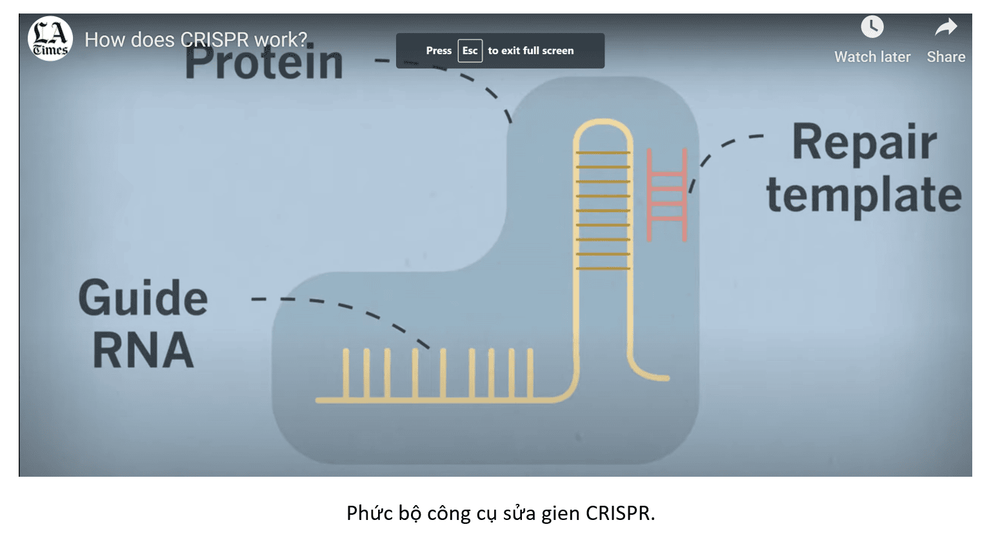
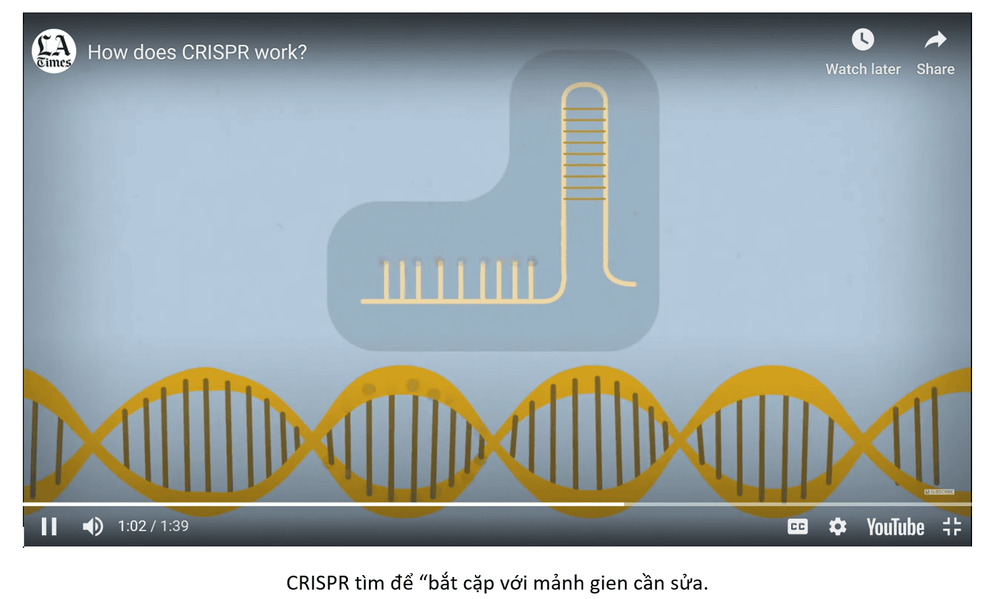
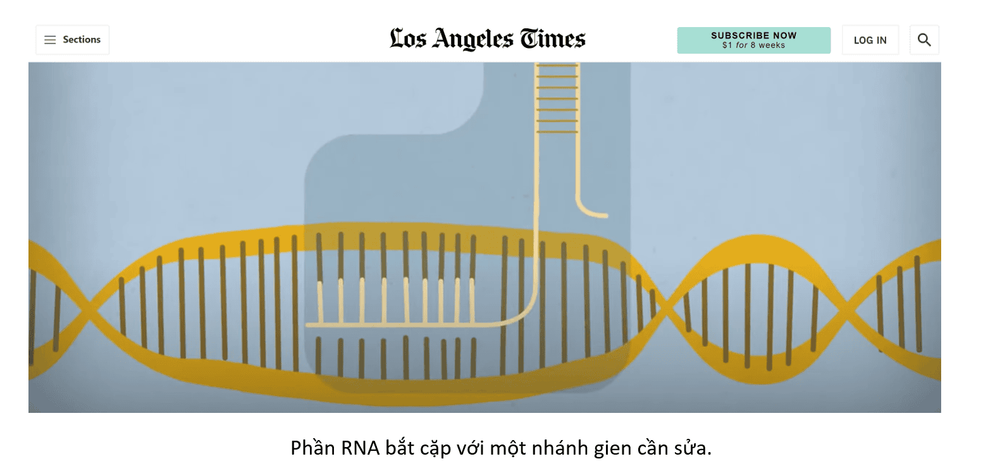
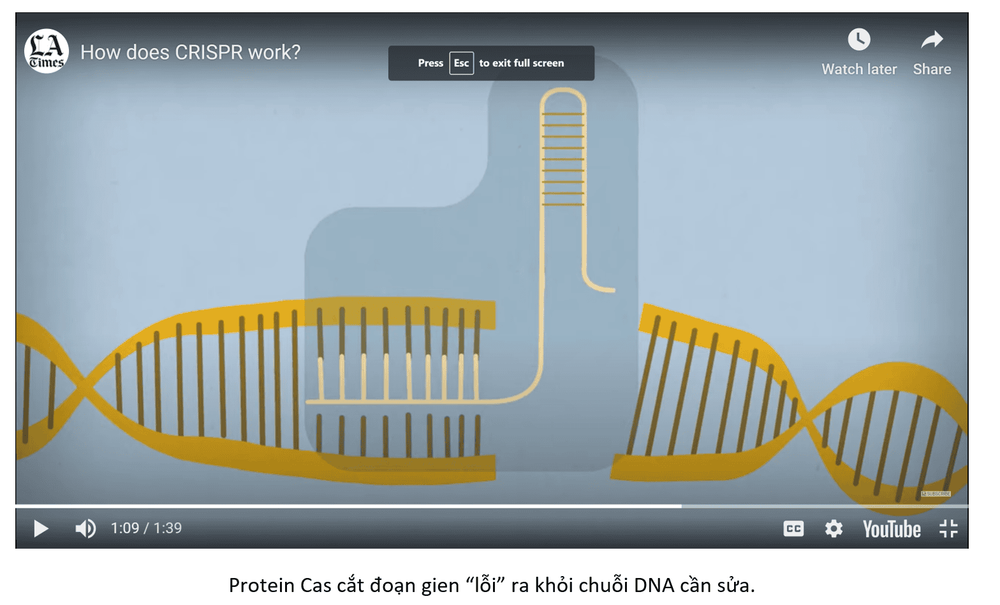
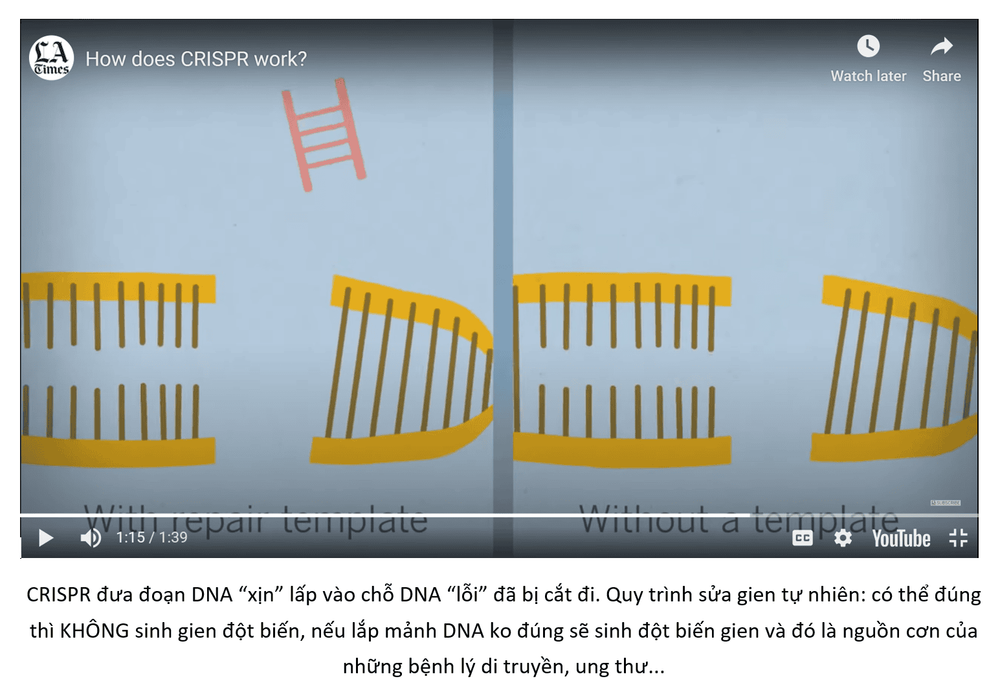
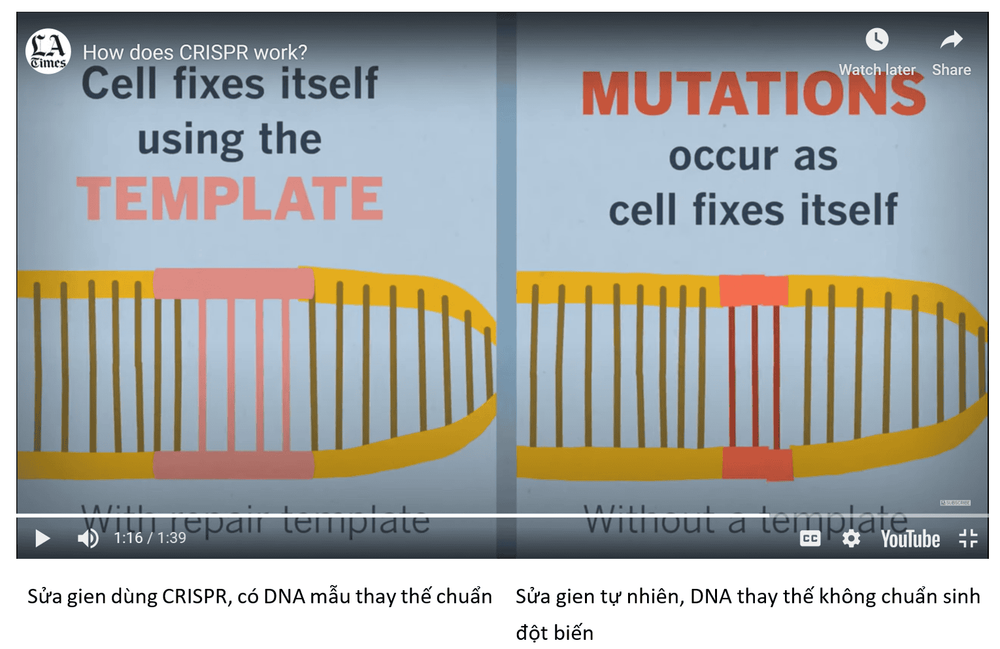
2. How does CRISPR apply?
Dr. Lou Staudt calls CRISPR-cas9 a morphing technology, when we know that the signaling molecules in the cell are abnormal, we can think of editing the gene that produces that molecule and maybe manufactures cancer drugs.Dr. Lou's Lab uses CRISPR to identify molecules that can be developed into cancer drugs: the National Cancer Institute (NCI) Cancer Research Lab is building a library Contains 9,000 genes that are potentially druggable. His lab is looking for genes necessary for the proliferation and survival of lymphoma cells, using CRISPR to inhibit proliferation genes and stimulate programmed cell death genes. to control cancer cells.
CRISPR differs from older generation gene editing tools in the basic feature that older gene editing tools can only inhibit the activity of the edited gene, while CRISPR has both that ability and the ability to enhance the activity of the corrected gene.
CRISPR is also used to understand the process of a healthy cell turning into a cancerous cell, cancer cells evolve to evade the immune system, resisting treatments. CRISPR can help find and block genes in cancer cells that contribute to drug resistance, or increase the sensitivity of cancer cells to drugs.
Can we imagine that if we could use CRISPR to block genes that cause chemoresistance and/or radiation and then use chemotherapy/radiotherapy at lower doses today, we could still cure cancer with almost negligible toxicity? Or, could CRISPR know the mechanism of resistance to treatment in advance, and humanity proactively develop early follow-up drugs for more proactive cancer management?
6/11/2019: The first two cancer patients were tested using CRISPR (01 patient with multiple myeloma, 01 patient with soft tissue cancer). Dr Edward Stadtmanuer of the University of Pennsylvania, principal investigator and professor at the Cancer Center, said that the experimental study only evaluates the feasibility and safety of cell therapy that has been genetically modified using the CRISPR tool. (CRISPR-generated gene cell) for cancer patients. CRISPR can transform the immune cell genome in the body of cancer patients into a super power, with strong "firepower" to attack and destroy cancer cells, increase fertility as well as survival time. in the body longer to kill more cancer cells. Hundreds of millions of these gene-edited immune cells act as living drugs in the patient's body to kill cancer cells. Patients who received cell transfusions in January, April, and August until the time of report 11/2019 had no significant symptoms of side effects. The next step in the trial was conducted on 18 cancer patients (who would choose melanoma, soft tissue cancer, or multiple myeloma). Laurie Zoloth, University of Chicago biomedical ethologist, reviewer on the National Institutes of Health's (NIH) Biomedical Ethics Committee, supports the early successes of the study and has noted Note that “run the trial cautiously on a small group of patients and do NOT exaggerate the achievements, be true to the reality that this method reveals in actual test patients”. In addition to the University of Pennsylvania, there are about 5-6 trials using CRISPR to treat certain diseases/disorders in Europe, the US, and Canada.
02 trials are being conducted by the cooperation of CRISPR Therapeutic of Cambridge, MA and Vertex Pharmaceuticals, MA, USA for the treatment of two hematological disorders, sickle cell disease and beta-thalassemia . The first beta-thalassemia patient is treated with CRISPR application in Germany, the second patient is also in Germany, the following patients are in London, Toronto... Sickle cell patients will receive cell transfusions. gene editing using CRISPR in San Antonio, New York, Nashville. There is another ongoing trial to treat genetic blindness funded by Editas Medicine at Boston, MA. This is the first trial to use CRISPR to edit genes even in cells that are still in the patient's body (trials on cancer patients are to take out the patient's immune cells, edit the genes, then transfuse back to the patient, gene editing is carried out in the laboratory). Several other cancer treatment trials are already underway at cancer centers in Texas and New York. China has been secretly using CRISPR to treat cancer for many years and has not released any information.
3. On the flip side, what are the concerns about CRISPR?
CRISPR is still in small group testing, need to wait to see if it really works and can be widely applied? Wait at least 1 year until 2020 to know the feasibility and safety of CRISPR in experimental cancer therapies.CRISPR abuse creates "clones" : Jiankui used CRISPR to create genetically modified twins who are HIV/AIDS-Immune. After this 2018 publication of the Chinese scientist, a group of 18 scientists and biomedical ethicists from 7 countries sent a letter of protest and request the efforts of the global community of legislators and researchers. control and prevent misuse of CRISPR in fetal gene editing, zygotes for the “production” of human clones as well as inhuman/anti-medical uses of CRISPR.
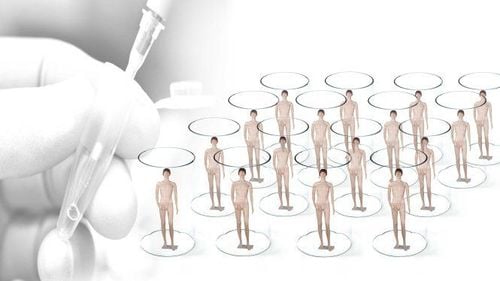
Please dial HOTLINE for more information or register for an appointment HERE. Download MyVinmec app to make appointments faster and to manage your bookings easily.
Reference article:https://www.npr.org/sections/health-shots/2019/04/16/712402435/first-u-s-patients-treated-with-crispr-as-gene-editing-human -trials-get-underway https://www.npr.org/sections/health-shots/2019/11/06/776169331/crispr-approach-to-fighting-cancer-called-promising-in-1st-safety- test https://www.npr.org/sections/health-shots/2019/03/13/701549223/call-for-global-moratorium-on-creating-gene-edited-babies https://www.npr. org/2019/02/05/690828991/gene-editing-scientists-actions-are-a-product-of-modern-china














